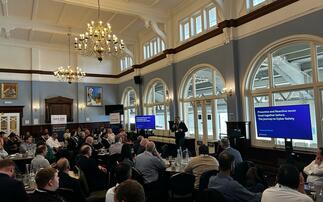Larry Walsh warns that cloud vendors are already seeing price pressures yet to hit the channel
A couple of months ago, the talk was about IBM looking to make a major cloud acquisition, likely SoftLayer or Rackspace. The intent was to expand Big Blue's hosting and service capacities, giving i...
To continue reading this article...
Join CRN
- Enjoy full access to channelweb.co.uk - the UK’s top news source for the IT channel
- Gain the latest insights through market analysis and interviews with channel leaders
- Stay on top of key trends with the Insider weekly newsletter curated by CRN’s editor
- Be the first to hear about our industry leading events and awards programmes
Already a CRN member?








